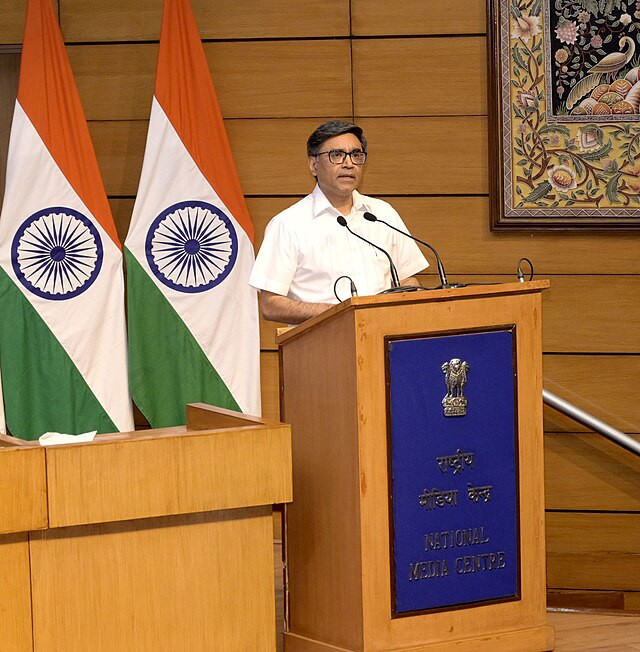India on Saturday accused Pakistan of violating a ceasefire agreement brokered by the United States just hours after it took effect, raising the risk of renewed conflict between the nuclear-armed neighbors following weeks of escalating violence in Kashmir.
The ceasefire was first announced by U.S. President Donald Trump in a post on Truth Social, declaring that India and Pakistan had agreed to a "FULL AND IMMEDIATE CEASEFIRE" after days of negotiations led by Vice President JD Vance and Secretary of State Marco Rubio. "Congratulations to both Countries on using Common Sense and Great Intelligence," Trump wrote.
Shortly after, Indian Foreign Secretary Vikram Misri confirmed the agreement during a press briefing but warned of "repeated violations" by Pakistan beginning later in the evening. "This is a breach of the understanding arrived at earlier today," Misri said. "We call upon Pakistan to take appropriate steps to address these violations and deal with the situation."
Misri emphasized that India is issuing an "adequate and appropriate response" and reiterated that Indian forces "remain in a high state of operational readiness."
Explosions were reported in Srinagar, the largest city in Indian-administered Kashmir. Omar Abdullah, Chief Minister of Jammu and Kashmir, wrote on X: "There is no ceasefire. The air defence units in the middle of Srinagar just opened up." Additional blasts were reported in Baramulla and Jammu, with residents describing loud explosions, power outages, and a lack of official guidance.
Indian Army Col. Sofiya Qureshi stated that Pakistani troop movements toward forward areas demonstrated "offensive intent to further escalate the situation." Indian Air Force Wing Commander Vyomika Singh denied Pakistani claims of damage to Indian military infrastructure, calling them "false" and part of a "malicious misinformation campaign."
Pakistan's Information Minister Attaullah Tarar denied any ceasefire violations in a televised statement. Prime Minister Shehbaz Sharif did not address the alleged breaches directly but thanked President Trump for his "leadership and proactive role," calling the ceasefire "a new beginning in the resolution of issues that have plagued the region."
The fragile agreement followed weeks of cross-border strikes and accusations after India blamed Pakistan-based militants for the April 22 attack that killed 26 Hindu tourists in Kashmir. In response, India launched strikes on targets in Pakistan and Pakistan-administered Kashmir, which it described as "terrorist infrastructure." Pakistan denied involvement and launched retaliatory strikes of its own.
Security analyst Sahar Khan warned that "this is still a very delicate and fragile ceasefire," noting that a previous agreement reached in 2021 had also seen repeated violations. "I do expect to see some back and forth on this," she added.
The ceasefire included an agreement between the two countries' military leaders to halt all fighting by land, air, and sea starting at 5 p.m. Indian time. A follow-up conversation between military officials is scheduled for May 12.






